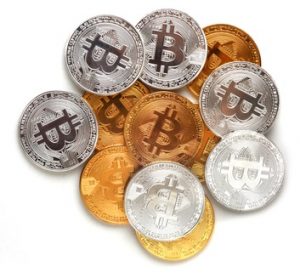
Venezuela’s president Nicolas Maduro has advanced the creation of the country’s national cryptocurrency, the Petro. He believes it will take off and solve the country’s economic problems next year, but experts are concerned with corruption. Moody’s credit rating agency, for example, says market participants would have no confidence in Maduro’s government to manage it.
Also read: South Korea Releases Emergency Measures for Cryptocurrency Regulation
Maduro Takes Next Steps with the Petro
News.Bitcoin.com reported last week on Maduro announcing the creation of the country’s national cryptocurrency called the Petro, backed by the country’s oil, gold, gas, and diamond reserves.
This week, Maduro revealed, as quoted by Ok Dinero:
In the next few days, I will sign the certificates where we put as certified support of the Venezuelan cryptocurrency, the Petro, thousands of barrels of oil from the Orinoco oil belt as sustainable support.
Maduro also commissioned Petroleum Minister Manuel Quevedo to coordinate the team that will create the Petro, according to the Costa Rica News. Quevedo is also the new president of the state-owned oil and natural gas company Petróleos de Venezuela (Pdvsa).
In addition, the Venezuelan government created two entities for the Petro this week: the National Blockchain Observatory and the Cryptocurrency Superintendency.

The former will oversee the operations of the Petro and serve as an institutional, political and legal base that will contribute to the launch of the new currency. The latter was created to govern the Petro transactions, with Carlos Vargas appointed as the superintendent.
“I have signed the decree for the creation of the superintendency of the Venezuelan cryptocurrency. I create a superintendency to govern the Petro,” Maduro announced and was quoted by Uno Tv saying:
I am sure that the steps we are taking are firm and the year 2018 I imagine, I feel it in my body, is the year of the takeoff of the cryptocurrency and the recovery of the economy of the country.
Avoiding Sanctions or Curbing Bitcoin Use?
U.S. President Donald Trump signed an executive order to impose economic sanctions on Venezuela and Maduro in August.
 Yaya Fanusie, Director of the U.S. Center on Sanctions and Illicit Finance, believes that even if Venezuela were to develop the Petro and find acceptance for it, the new currency would unlikely help the government circumvent sanctions, El Nuevo Herald reported. “Most cryptocurrencies are identifiable and are not used as much to help authoritarian regimes to circumvent far-reaching sanctions,” she claims.
Yaya Fanusie, Director of the U.S. Center on Sanctions and Illicit Finance, believes that even if Venezuela were to develop the Petro and find acceptance for it, the new currency would unlikely help the government circumvent sanctions, El Nuevo Herald reported. “Most cryptocurrencies are identifiable and are not used as much to help authoritarian regimes to circumvent far-reaching sanctions,” she claims.
Instead, Fanusie suggested that Maduro’s announcement “sounds more like populist rhetoric to convince people not to use bitcoin,” which has become popular in Venezuela as the bolivar continues to depreciate.
Opportunity for More Corruption
A state-backed cryptocurrency like the Petro may offer new opportunities for corruption, the news outlet added, and then quoted Pedro Burelli, a former Pdvsa board member, saying:
This is another possibility of creating another business that is not transparent, which is like manipulating currency exchange rates, laundering money and smuggling gasoline.
Eric Farnsworth, Vice President of the Council of the Americas concurred, stating that “The potential for massive corruption is huge and Venezuela has become a society overwhelmed by corruption.”
Moody’s Sees Little Success in The Petro
 Credit rating agency Moody’s published a report on the prospect of the Petro this week. The agency “sees little success in Venezuela’s attempt to circumvent international sanctions,” Ok Dinero reported. “The rating agency considers economic mismanagement, as well as political tensions and the suppression of economic data, has undermined the credibility of the government of Venezuela among foreign investors,” the news outlet noted and quoted the agency stating:
Credit rating agency Moody’s published a report on the prospect of the Petro this week. The agency “sees little success in Venezuela’s attempt to circumvent international sanctions,” Ok Dinero reported. “The rating agency considers economic mismanagement, as well as political tensions and the suppression of economic data, has undermined the credibility of the government of Venezuela among foreign investors,” the news outlet noted and quoted the agency stating:
Even if the government were able to establish a virtual currency, we do not believe that the market participants felt sufficiently confident that the government would manage it faithfully and transparently, which would limit their willingness to buy or carry out transactions in petroleum.
Moody’s concluded that this lack of credibility would undermine the government’s efforts to utilize the Petro as alternative financing to avoid U.S. sanctions in the context of restructuring debt.
What do you think will happen with the Petro? Let us know in the comments section below.
Images courtesy of Shutterstock, Ariana Cubillos AP, and Twitter.
Need to calculate your bitcoin holdings? Check our tools section.
